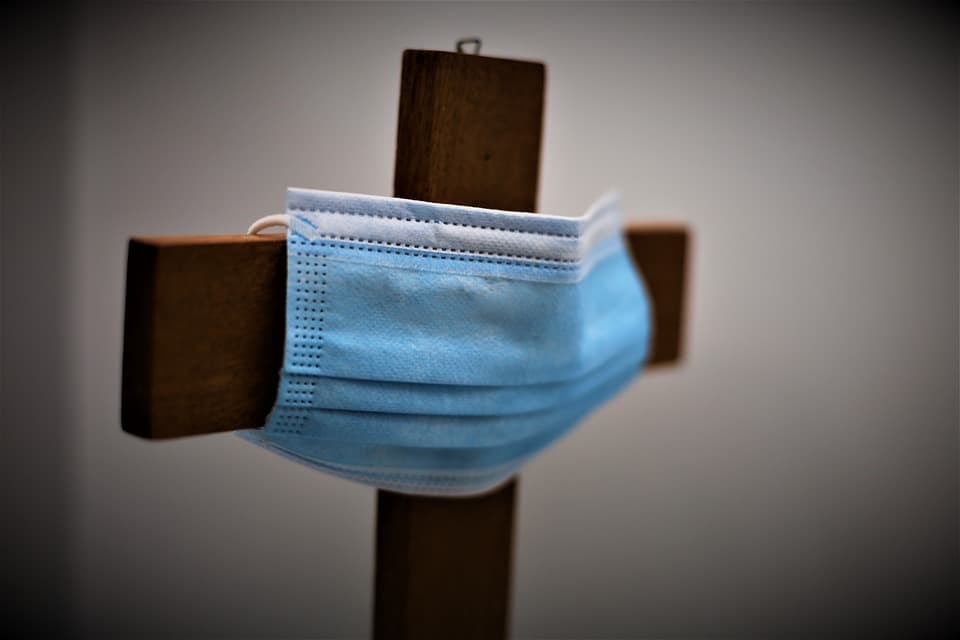The COVID-19 pandemic may be over, but its impact has had lasting effects on parish life in the Netherlands, according to a survey by the Dutch Catholic weekly Katholiek Nieuwsblad conducted three years after the initial lockdown in the Western European country.
The decline in church attendance from pre-pandemic levels, already predicted by many, can now be confirmed. Between 2019 and 2022, there was a drop of as much as 36 percent in weekend church attendance in the Netherlands.
“If you calculate this through, you end up with an average decline of about 14 percent per year, whereas in the years before the pandemic the decline averaged about six percent,” said Joris Kregting of research institute Kaski to Katholiek Nieuwsblad.
But there is another, less anticipated effect: The number of church volunteers also sharply declined. In the first year of COVID, that number dropped 10 percent, while in previous years the decline was three to four percent annually. “
“With churchgoers, the interruption caused by COVID may be temporary, with volunteers, quitting is more likely to be permanent,” Kregting noted. And this at a time when parishes in the country have the greatest difficulty finding new volunteers, he added.
Katholiek Nieuwsblad not only spoke with researchers and professionals working in parish pastoral ministry, but also conducted an online survey among Catholic parishioners in the Low Countries about their experience of the effects of the pandemic.
The picture of decline in church attendance was endorsed by a large majority: Church attendance in one’s own parish was slightly less than before the pandemic according to 43.8 percent, even much less according to 23.4 percent. However, 78.8 percent stated that they themselves still attend church about as often as before the pandemic – but the survey is likely to have been filled out mainly by active churchgoers and therefore does not claim to be representative of the entire Catholic community.
The survey results show a sharp contrast in the personal valuation of COVID effects: Many of the effects most often valued as positive – such as digital developments, no more shaking hands during the exchange of peace, decline in Communion on the tongue, etc. – also score high on the list of effects perceived as negative.
This might be indicative of a polarization that has also taken place within the Church community in the Netherlands, and is also noticeable in the responses of many respondents.
“This madness has only created an even greater divide between people,” wrote one survey participant. Another complained of “inhumane and un-Christian” reactions toward believers who did not want to be vaccinated.
Yet churchgoers and church workers alike also see many positive effects of the pandemic in parish life.
“Personally, I got to know a lot more people through the whole corona event,” parish volunteer Annemarie de Boer told Katholiek Nieuwsblad.
This positive social effect is also frequently mentioned in the survey of parishioners. For example, one participant writes, “Because lists of names had to be kept, a welcoming group was created. Now everyone is welcomed when entering, often by name. Very nice!”
Deepening of faith and attention to the missionary aspect of church life are also often mentioned as positive effects. Several parishioners speak of more emphasis on the essentials of the faith during the liturgy and growth in personal devotion and participation in the sacraments. “The first time together again with people in the same church, praying aloud the Lord’s Prayer, the Gloria and the Creed made a deep impression on me,” one respondent wrote.
According to Father Arjan Bultsma, pastor of St. Titus Brandsma Parish in Bolsward, the development of livestream celebrations in particular has lowered the threshold of parishes for those interested. This fits well with the parish’s missionary role, Bultsma told Katholiek Nieuwsblad.
“The Church itself is mission. COVID has helped to bring more attention to this.”












